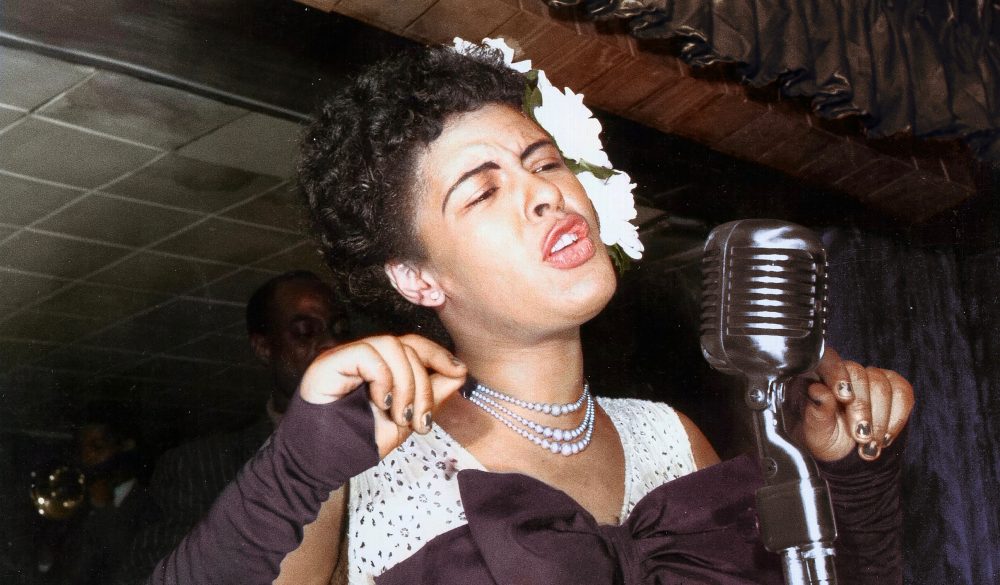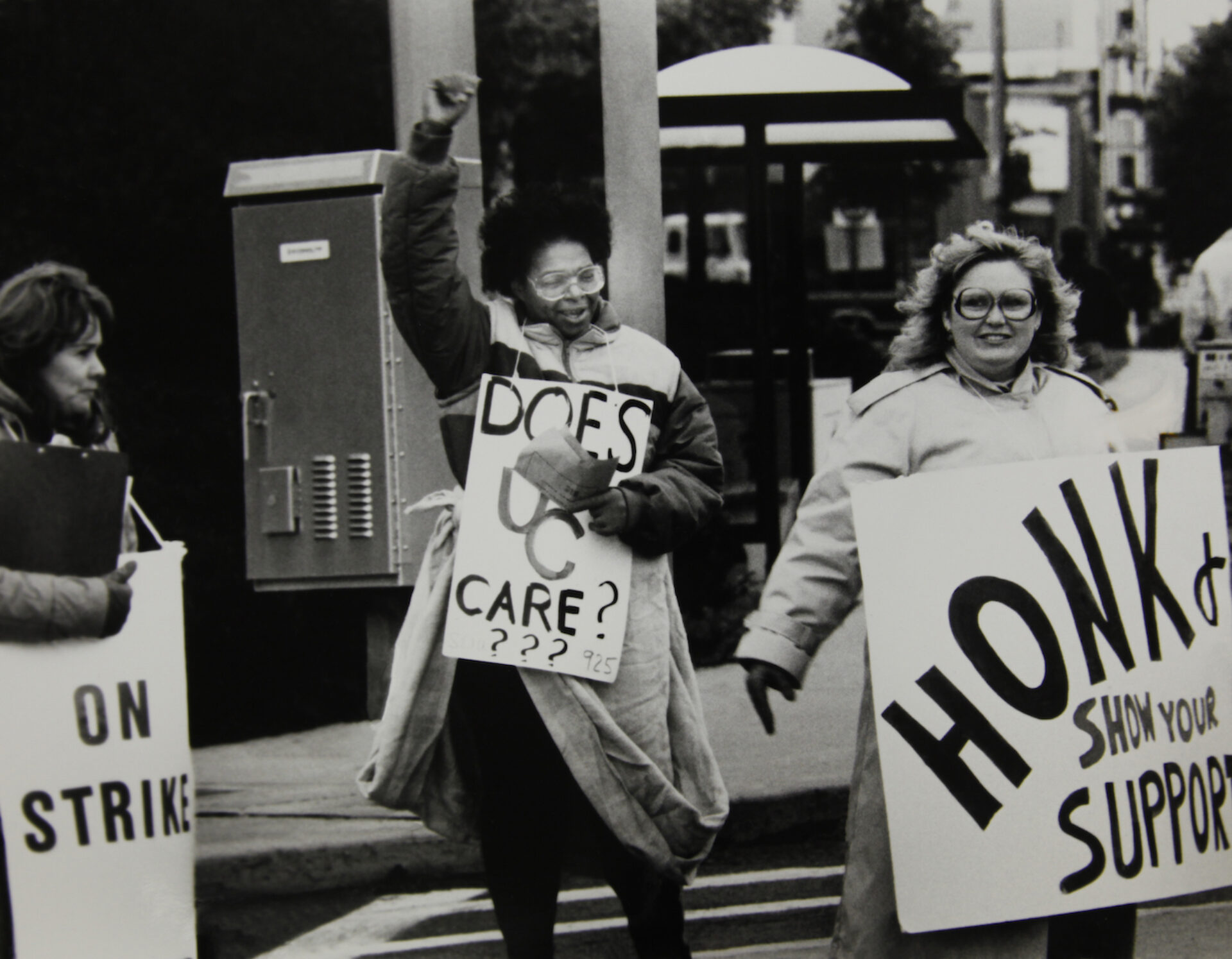Billie
(USA, 97 min.)
Dir. James Erskine
Here is a strange and bitter crop. Billie goes against the grain amid the nostalgic music docs of 2020. This intricately constructed profile is no hagiography. James Erskine’s portrait of legendary blues singer Billie Holiday is dark, sombre, and soulful in its consideration of an American icon. The darkness of the film is appropriate, though, as it intertwines Holiday’s story with a true crime tale. Given the materials that Erskine uses to create this rare profile of Holiday, however, and the circumstances through which the archival resources became available, one couldn’t have made Billie any other way.
In doing that, however, Billie may appeal to doc fans more to fans of Holiday herself. While the film rides the difficulties of Holiday’s career and, especially, personal life through her death at only 44 years old, Billie may hew closer to a victim narrative than fans would like. The challenges and heartaches within Holiday’s story, however, deepen her music and complement the secondary narrative that runs throughout the film.
Billie draws from over 200 hours of audio tapes left by late teacher and journalist Linda Lipnack Kuehl. The doc informs viewers that Kuehl died – under strange circumstances that the police quickly said pointed to suicide – leaving behind an unfinished biography about Holiday and nearly 200 hours of interviews conducted with the singer’s friends and colleagues. The tapes, long thought lost, appear with restored audio, archival videos, and lovingly colourized photographs to create a comprehensive and challenging account of a woman who broke barriers and paid a price. And, inevitably, the music is wonderful with Holiday’s signature voice echoing throughout.
Erskine’s film takes a double-pronged approach to the world of archival documentary. On one hand, it uses a treasure trove of materials to explore the life of a singer in details. On the other, it wonders what happened to the curious journalist who asked questions that some of Holiday’s friends and colleagues would have rather avoided. Kuehl’s sister Myra appears in the film and makes clear that she suspects that her sister was murdered. The charge is not a stretch, since few people seem likely to jump out the window while getting ready for bed. More significantly, Myra reminds Erskine that Linda was a writer and didn’t leave a note.
Either way one interprets Kuehl’s death within Billie’s Volcano -like deliberation of a writer’s mysterious death, one can say the book killed her. Throughout the audio interviews, one hears tense exchanges as Kuehl digs into the circumstances of Holiday’s employment and her friends’ loyalty to her, as well as her ongoing run-ins with the law. A chronic drug user, the film charts Holiday’s struggle with addiction, going from casual pot smoker to heavy consumer of hard drugs as she entered one toxic relationship after another. Billie also charts Holiday’s victimization by law enforcement, who made her a priority for surveillance despite being nothing more than a consumer. The tapes state clearly that the narcotics squad’s interest in Holiday was racially motivated. They didn’t like the sight of a Black woman running around town in Cadillac while decked out in furs and diamonds with a reefer in her hand. Holiday’s celebrity inspired them to make an example of her in America’s war on drugs.
Many of the stories in Kuehl’s tapes reflect upon the racism that Holiday encountered while touring in segregation-era America. Interviewees explain how Holiday often faced scrutiny from both sides of the aisle as white people denied her access to restaurants, hotels, and washrooms, frequently leaving her alone while her white band enjoyed a hot meal or shelter. In perhaps the highlight of the film, one interviewee challenges Kuehl, who was white, and says that she could never fully appreciate the humiliation Holiday experienced when even a bathroom was a luxury. It’s a tense exchange that suggests that Kuehl may not have been the right person to be asking such questions, but it also exemplifies how emotionally charged the conversations tend to be. (Another tidbit is one interviewee’s observation that Holiday always ordered a burger to go before leaving a restaurant. She carried it in her purse knowing that she could never predict if her next stop on the tour would serve Black people.)
Similarly, interviewees observe how Holiday’s fair complexion made her an outsider among Black audiences. Kuehl learns that Holiday frequently had to darken her skin before taking the stage. Erskine’s colourization of old photographs illustrate this point Holiday’s skin tone onstage and off, evoking a woman straddle two worlds in pursuit of success.
These stories converge in the centrepiece of the film, which examines Holiday’s soulful recording of the song “Strange Fruit.” A sombre ballad that protests the lynching of Black Americans evokes everything that Kuehl gleans in interviews. Holiday’s performance of the song conveys the pain of her experience, but also her ingenuity as an artist as she channels this ache into a haunting melody. The song echoes throughout Billie as the interviews reflect on Holiday’s legacy as well as the crows that plucked upon the fruits of her success. One can’t seem to tell this story without the scavengers.
Billie streams at Hot Docs Ted Rogers Cinema and opens in select theatres Nov. 13.











